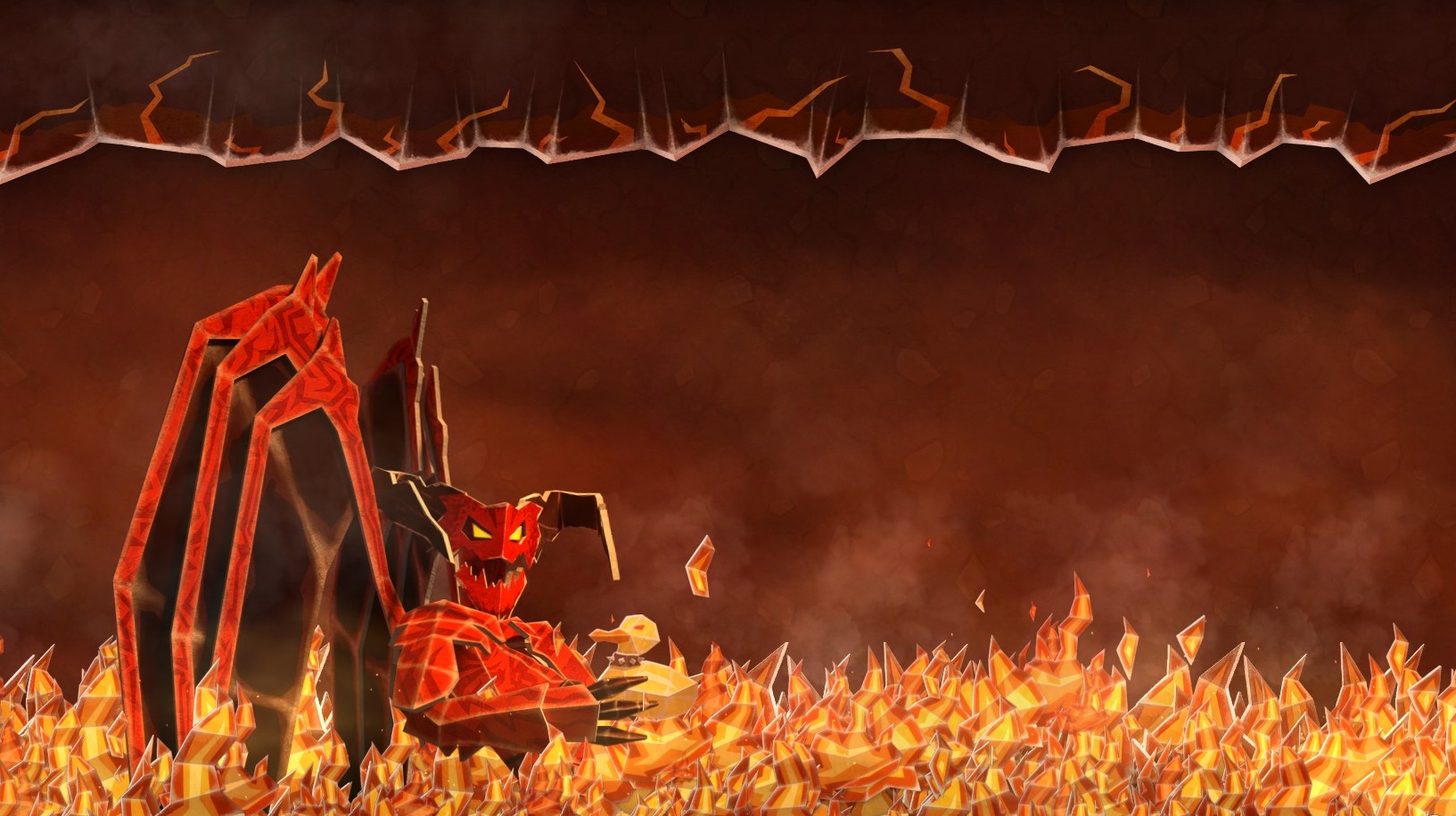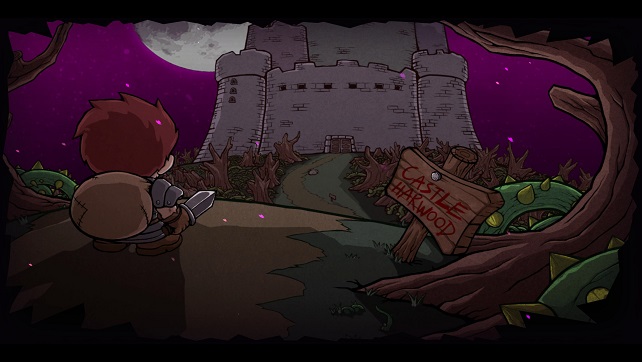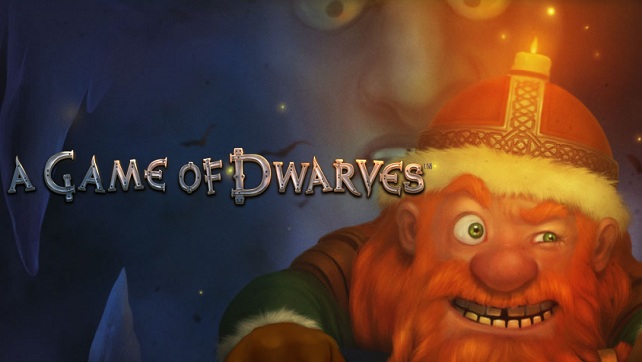(Review) Book of Demons
In the grim dark future, there is only loot. To get said loot, one must travel through dungeons and wreak chaos and death up on evil baddies until you beat the loot out of them! This seems about right. We’re not talking about Torchlight here, we’re talking about Book of Demons. This is essentially what you you get when Diablo and Epistory get together and have a baby. We get all of the dungeon crawling with a nice paper-stylized ARPG with loot and deck building. Does it work? Better yet… does it even compare to the greats that we already have in this arena? Let me break it down for you.
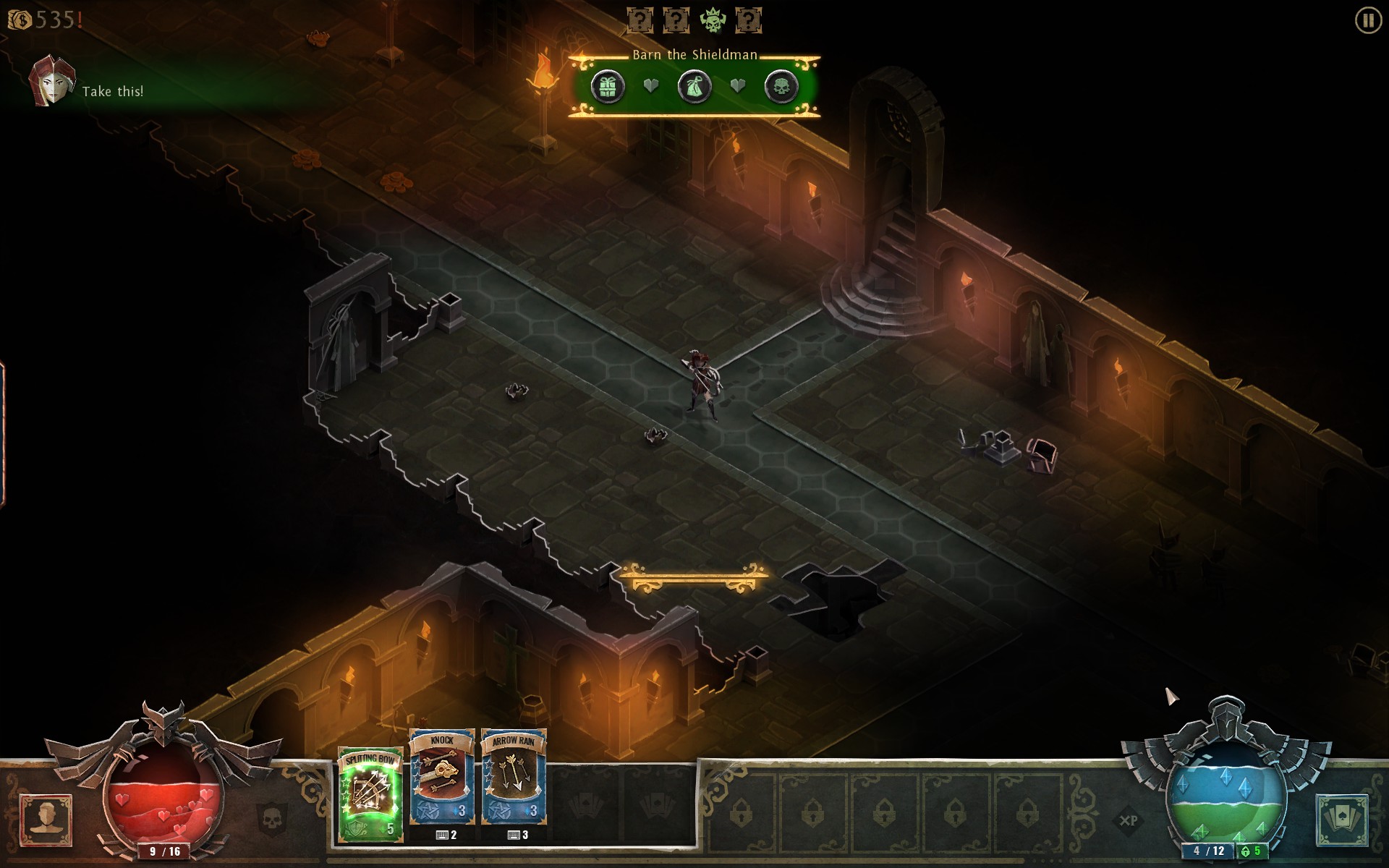
In a way, this is a tribute to the old-school dungeon crawling of Diablo. You are the traveling hero that comes to save the town from some real demonic junk that’s ravaging them. There are a few core differences in how the gameplay is executed. Moves are not attained when you level-up; they are attained as loot found in the dungeons as you go about your work. They come in the form of cards. Some are item cards like potions, some are active spell cards that will cost you mana to use (like lightning) and then passive skills that will put a hold on a specific amount mana (think: health regen). This is mana that is taken out of your pool of usable mana that you can’t use for your active spells that you would be using to cast in real-time. Let’s say you have twenty mana, but have three passive spells that cost three, seven and eight. That would mean you only have two mana to use for spells which may also mean that you can’t use any spells you need to actively cast until you either change your hand or choose mana over health when you level-up.
There are different qualities of cards ranging from common to legendary as per the norm, but you can also upgrade the individual spells as well. To do this you will need money and more cards that you get randomly from loot. Each card has requirements to level needing one or more varieties or Sun, Moon or Life cards to upgrade. This is a cool way of doing the magic system because it’s also your gear or skill tree (technically). In other ARPGs, you’d need to find gear that has health regen on it which is helpful when you’re out of potions or can’t heal yourself. Instead of finding multiple pieces gear that will benefit you in this way, you just need to get one card and level it up. Granted, that is also dependent on if you find it or not. You could be unlucky and not get the card to drop the whole run. I almost want to assume they will give you some form of heal option. Wouldn’t it be funky (or crappy) if you played the whole game and as a warrior and the potion card never dropped so you couldn’t heal yourself without leaving the dungeon to go and pay the healer for his services? (That would suck.)
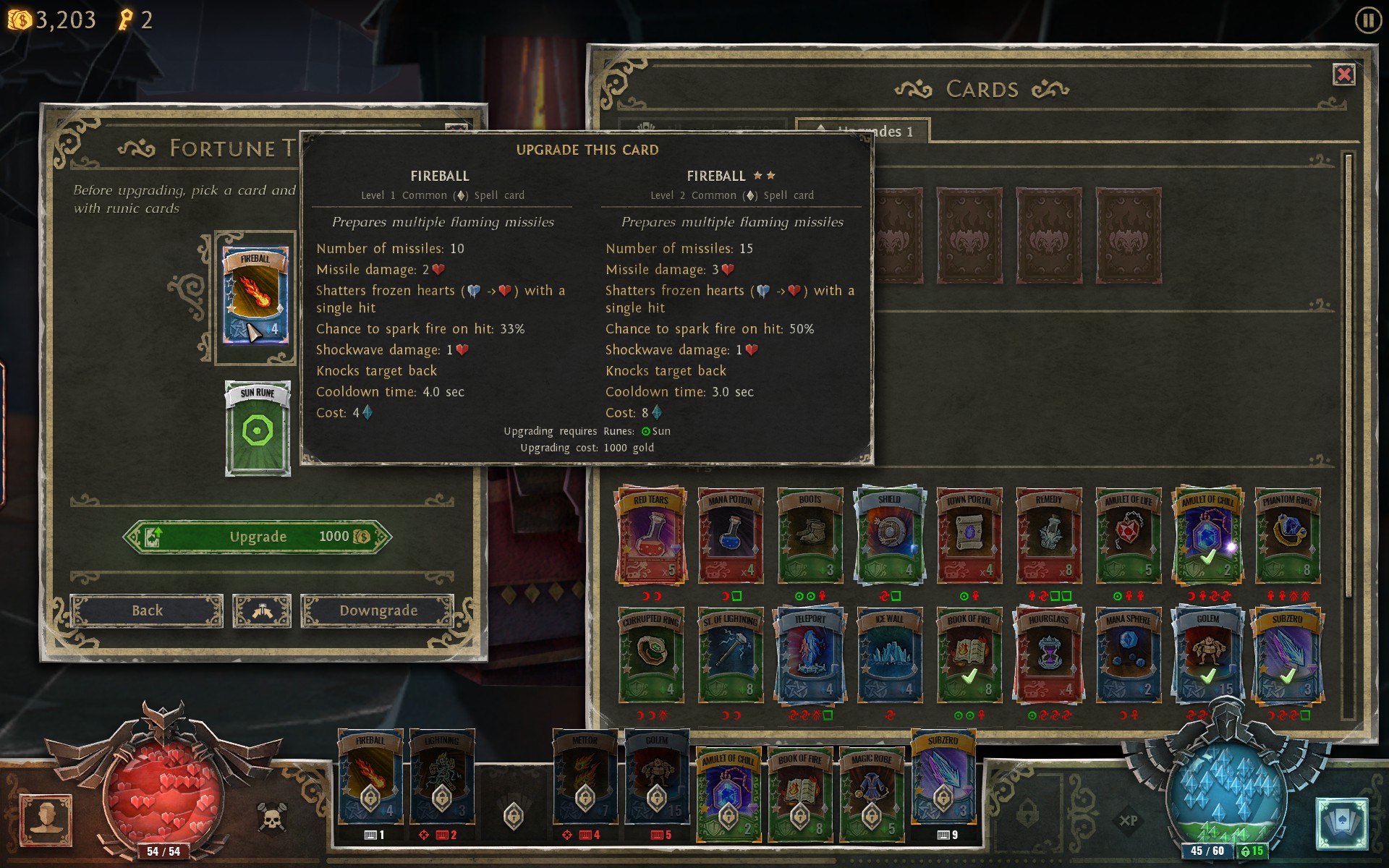
Not that it’s bothersome to go to town. I like going to town. I find the interaction between the villagers to be rather amusing. (They also have good singing voices… except when the Sage has a solo.) The Sage and the Fortune Teller bicker about each other and the Sage also laments the Barmaid’s desire to learn the Fortune Teller’s skills. The Healer has caught the skeptical eye of the Barmaid as she wonders why he stays in this hellish place when he is a coward. It’s all very serious in the setup, but the execution of narration is where Book of Demons excels. There is witty banter all around and it pops up constantly as you’re venturing into the depths of the dungeons. Even in Hell you’ll laugh a bit. It’s the little jokes here and there that get me the most.
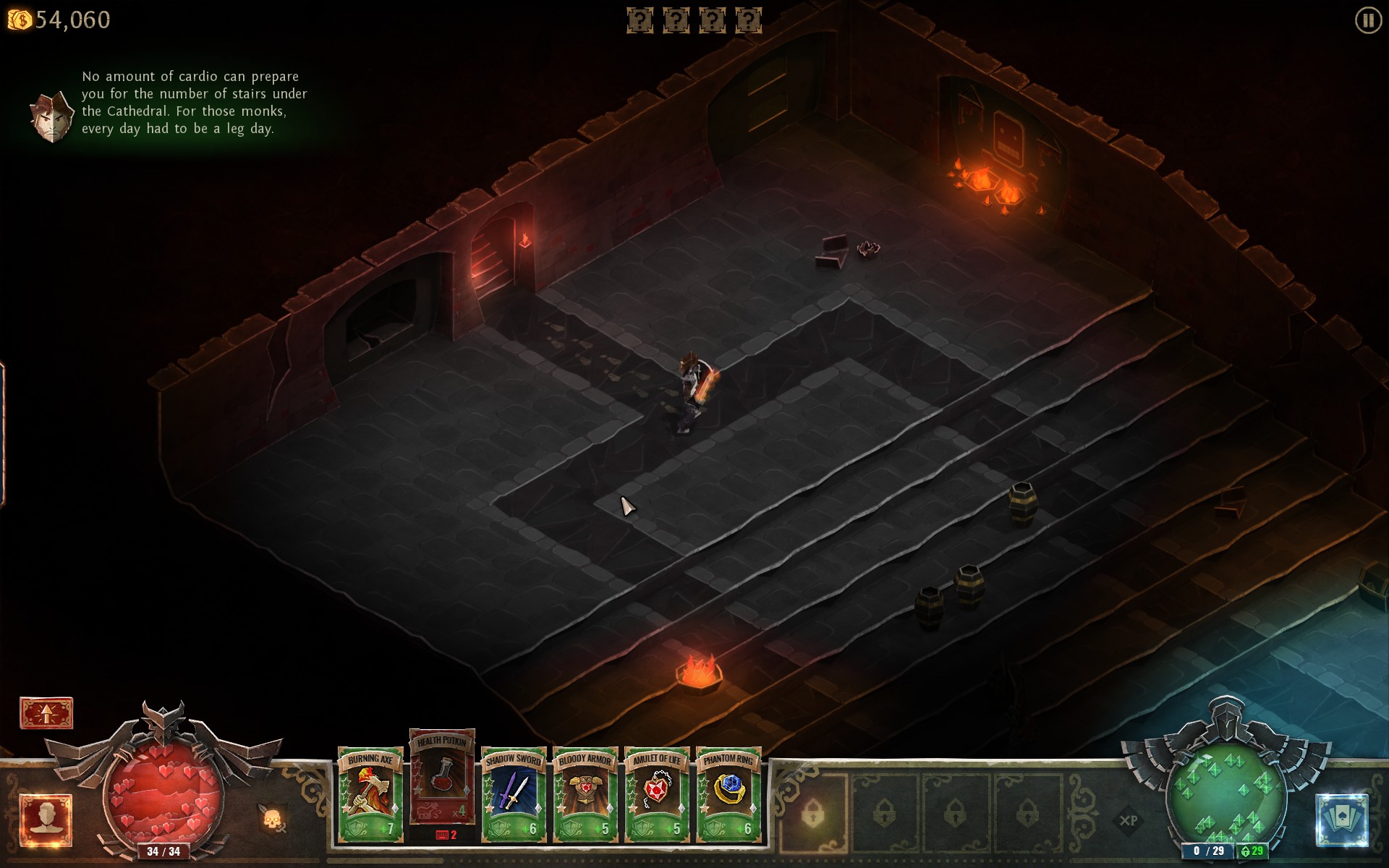
It’s also good that they have this healthy amount of humor peppered throughout the game because this game comes packing a bucket of pain for you to drink all at once at times. The dungeons are procedurally generated and that plays well into the replayability. However, I am not one who fully appreciated this approach. I love it when a developer crafts the world specifically and when everything has been placed on purpose. You may argue that this can be accomplished while utilizing procedural generation, but we would disagree. That doesn’t mean that games using this method have no hope, but they do have a higher chance of making crap rooms at times.
I took a mage to the end and have been enjoying the Warrior and am about half way down the stairs (50% of the way through the game). There are rooms where I’ve died as the warrior due to my card choices and not having enough resources drop so I could have upgraded my cards to be nicer. I’m more of a passive skill guy and it feels like the game is meant to be played with more active skills being clicked a lot. No matter what your setup though, sometimes nothing can prepare you for a small room with a metric ton of baddies shooting you at range with other things getting in your face and blocking your path… while you’re on fire (of course). “Just go around.” you may say. Also, they take a page from the Go franchise of games and there are specified paths you must stay on. You will die. Maybe that’s built into the difficulty. I would like to see someone make it all the way to the Archdemon as a Mage and win. This, truly, would be a feat of strength. With as much of a glass cannon as the Mage is, I want to say that it’s impossible. Please link me a “Let’s Play” of someone doing this. Anyone…? Maybe if you maintain order with some summoners dying first, situations could be better controlled, but I believe there will be a room waiting for you with a bunch of crap that will punch you right in the sensitive spot and send you packing back to town not of your own volition.
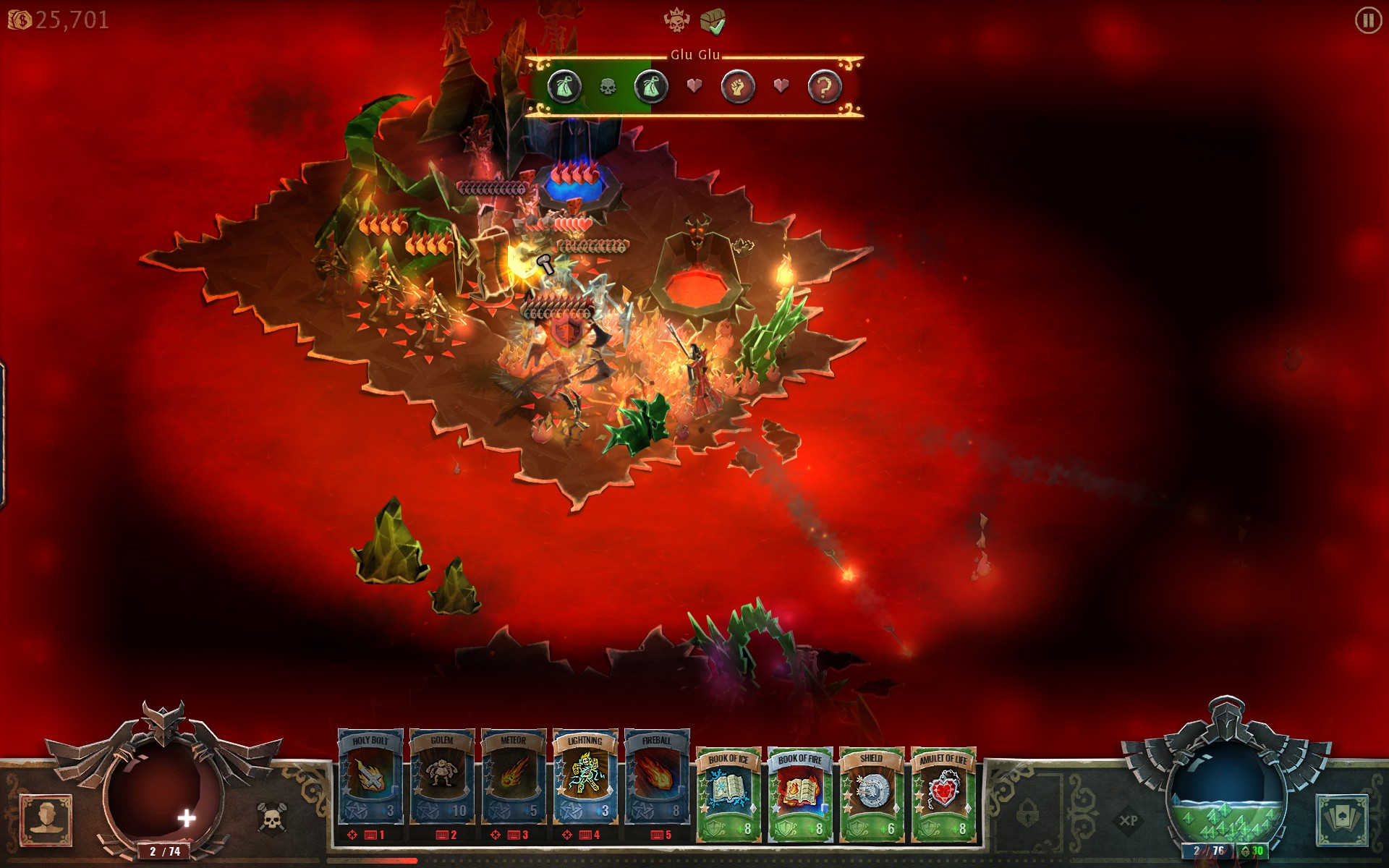
To help ease the pain of possible sensitive spot punching, you can make your ventures into the dungeons as long or as short as you want. With the trusty, built-in, Flexiscope ™, you can choose how big the current section of dungeon will be. If you want a long winding dungeon, you can eventually choose to make them “Very Big” and go for an adventure that will last anywhere from 40 something to 50-ish minutes. Yes, you can choose to take on a large section of dungeon and then leave whenever you want to. The benefit of finishing are the rewards… which really seem to amount to avatar and achievement hunting. There’s nothing wrong with that. There is chance that the rewards are greater (money included) and obviously you’ll make more progress, but you’re still taking the time. If increasing the size of the dungeon does literally increase the output rewards and you can always leave when you want… why would you go with a smaller dungeon? (Unless you just really need that dopamine hit more often I guess.)

Further Reading on Book of Demons: Facebook / Official Page / Steam / Twitter
